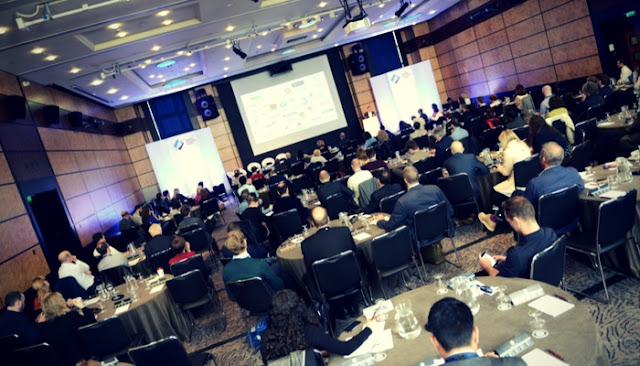The trouble with insight
This week, many of the industry’s finest minds are gathering in the beautiful city of Amsterdam for the annual Insight Innovation eXchange Europe conference (IIeX).
I was fortunate enough to attend IIeX Europe two years ago, and was inspired by the clarity of thinking, quality of presentations, creativity of solutions, level of collaboration and, yes, the insight on display.
I came back buzzing with ideas for new ways to think about developing insight and how the output might become better embedded within an organisation.
Since then, I have spent time with other insight-focused organisations and conferences including Insight Management Academy, Insight Intelligence and the Insight Show.
These interactions have further reinforced my belief in the power of insight.
It also got me thinking about what true insight is and how it can make a real difference - given my job title was ‘Head of Insight’, I figured I should have a point of view on the subject.
In my role, as you might imagine, I was a popular target for cold sales pitches from all manner of companies involved in what I’ll loosely call the ‘insight industry’.
Some of those pitches led to excellent meetings, new relationships being forged and some even resulted in significant projects.
Most pitches however didn’t seem to offer anything particularly new or relevant so were politely declined, but there was one that I still recall for all the wrong reasons, primarily for causing me a mixture of irritation and concern.
This company promised, in a grandiose way, that they would deliver ‘real-time insights at the push of a button’. I’ve fortunately managed to forget the name of the company, but their proposition still haunts me.
I found their pitch intensely irritating because it suggested that insight was something so basic and commoditised that it could instantaneously be generated directly from data.
What absolute nonsense and what an insult to those many highly intelligent individuals who have devoted their professional lives to finding new and innovative ways of uncovering and applying insight to help solve business issues.
But I also found their pitch concerning in terms of how it might resonate with the higher authorities in an organisation who on the surface, might find the promise of ‘insight at your fingertips’ to be compelling.
“Why wait for experienced insight professionals to think about the issues involved when you can have the answers available in a dashboard in real time?”
I have been involved in and around the insight industry for many years and I know that real, game-changing insights are hard to find and once found are to be cherished.
True insight can also make a massive difference to a company or brand and can lead to profound changes in the way they do business. It can deliver spectacular results too.
But in my experience, this only comes about when people who know what they are doing apply their minds and experience to a problem, think deeply about it from every angle and unearth a new way of looking at the issue, leading to a fresh approach. An insight in other words.
Insights may find their origins in all sorts of places - patterns of actual human behaviour; unmet consumer needs; societal trends; economic factors; relationship dynamics; social influence; product performance; emotional trade-offs; trends in parallel categories; patterns in historical data…. the list goes on.
But fresh insights infrequently come from just a single source of input, are unlikely to be purely ‘data-led’ and never conveniently emerge fully-formed in real time.
Big data often plays a key role in helping us to uncover fresh insights, but the process of data analytics shouldn’t become synonymous with the development of the insights themselves.
However, this is often exactly what does happen, with people’s idea of an ‘insight’ being limited to a set of stats – 74% of people do this, 56% of people do that…. for me, that is an observation at best.
On the one hand, it may be heavy on the What they did, perhaps When they did it and if you’re lucky, maybe an inferred or aggregated Who they are?
But on the other hand, it is remarkably light on answers to the more fundamental questions like How they did it, Why they did it, or So What do we do about it?
But as every cloud has a silver lining, I’d like to think that the more insight becomes homogenised and automated, the more opportunity there will be for the genuine, big-thinking insight professionals to come to the fore.
To differentiate themselves from the stats and dashboard merchants and demonstrate the transformational value that major human insights can deliver to a business.
Or, to paraphrase Paul Hogan, to be able to stare anyone down and confidently state “That’s not an insight…THIS is an insight!”




Comments
Post a Comment